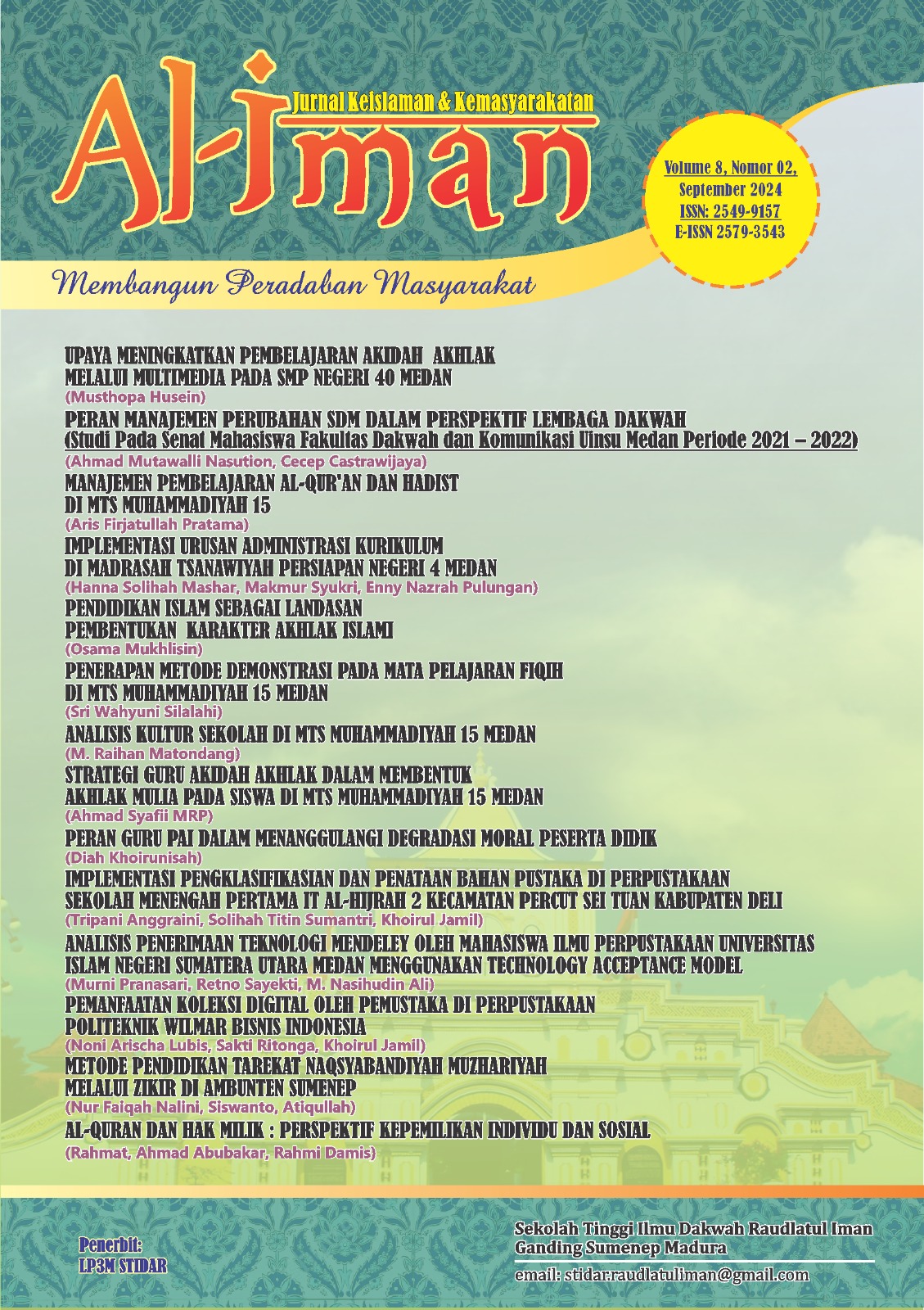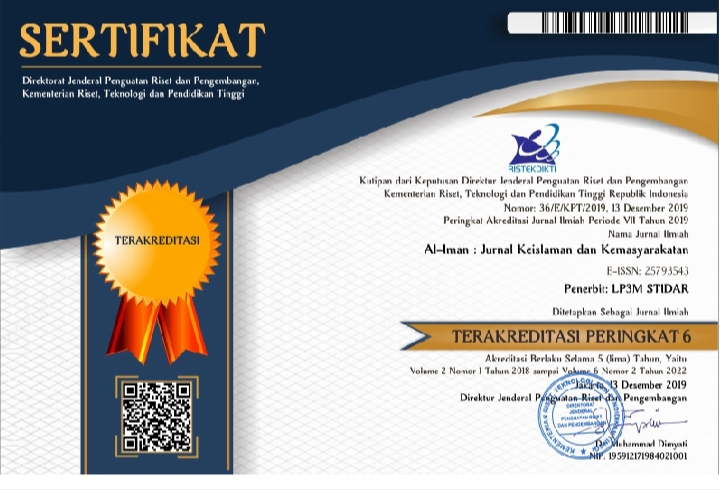MENELUSURI JEJAK PEMIKIRAN AL-GHAZALI: DARI KRITIK FILSAFAT HINGGA SINTESIS ILMU DAN SPIRITUALITAS
Keywords:
Al-Ghazali, Pemikiran, Epistemologis, Kritik FilsafatAbstract
Artikel ini mengkaji pemikiran Imam Al-Ghazali (1058-1111 M), salah satu tokoh intelektual terkemuka dalam sejarah Islam yang dikenal dengan gelar Hujjat al-Islam. Melalui pendekatan historis dan analisis kritis terhadap karya-karyanya, penelitian ini menggali kontribusi signifikan Al-Ghazali dalam bidang filsafat, teologi, dan tasawuf, serta sintesis komprehensif yang ia bangun di antara berbagai dimensi keilmuan Islam. Kajian ini membahas latar belakang sosio-politik masa Al-Ghazali, perjalanan intelektual dan spiritualnya, serta karya-karya monumentalnya seperti Tahafut al-Falasifah dan Ihya' Ulum al-Din. Fokus utama penelitian adalah epistemologi Al-Ghazali, kritiknya terhadap rasionalisme filosofis, konsepsi tentang hubungan akal dan wahyu, serta kontribusinya dalam melegitimasi tasawuf ke dalam ortodoksi Islam. Lebih jauh, artikel ini menganalisis relevansi pemikiran Al-Ghazali dalam konteks modern, terutama dalam menjawab tantangan globalisasi, sekularisasi, dan krisis moralitas. Temuan menunjukkan bahwa pemikiran Al-Ghazali menawarkan kerangka integratif yang menyeimbangkan rasionalitas dan spiritualitas, serta memiliki potensi kontributif dalam pengembangan pendidikan Islam kontemporer dan dialog antara tradisi dan modernitas. Penelitian ini memperkaya diskursus akademik dengan menyajikan perspektif komprehensif tentang warisan intelektual Al-Ghazali dan signifikansinya bagi pemikiran Islam saat ini. Abstract This article examines the thought of Imam Al-Ghazali (1058–1111 CE), one of the most prominent intellectual figures in Islamic history, renowned by the title Hujjat al-Islam. Through a historical approach and critical analysis of his works, this study explores Al-Ghazali’s significant contributions to philosophy, theology, and Sufism, as well as the comprehensive synthesis he constructed among various dimensions of Islamic knowledge. The research discusses the socio-political background of Al-Ghazali's era, his intellectual and spiritual journey, and his monumental works such as Tahafut al-Falasifah and Ihya' Ulum al-Din. The main focus of this study is Al-Ghazali's epistemology, his critique of philosophical rationalism, his conception of the relationship between reason and revelation, and his contribution to legitimizing Sufism within Islamic orthodoxy. Furthermore, this article analyzes the relevance of Al-Ghazali’s thought in the modern context, particularly in addressing the challenges of globalization, secularization, and moral crisis. The findings suggest that Al-Ghazali’s thought offers an integrative framework that balances rationality and spirituality, and holds significant potential for contributing to the development of contemporary Islamic education and the dialogue between tradition and modernity. This study enriches academic discourse by presenting a comprehensive perspective on Al-Ghazali's intellectual legacy and its significance for contemporary Islamic thought.Downloads
Published
Issue
Section
License
Al-Iman: Jurnal Keislaman dan Kemasyarakatan (ISSN : 2549-9157xx) dan (EISSN: 2579-3543xx) diterbitkan oleh Lembaga Pusat Penelitian dan Pengabdian Masyarakat (LP3M) STID Raudlatul Iman (STIDAR) Sekolah Tinggi Ilmu Dakwah Raudlatul Iman Sumenep Madura. Jurnal ini memuat kajian-kajian keislaman yang meliputi Kajian Dakwah, Interaksi sosial. Terbit dua kali setahun, yaitu bulan Maret dan september









